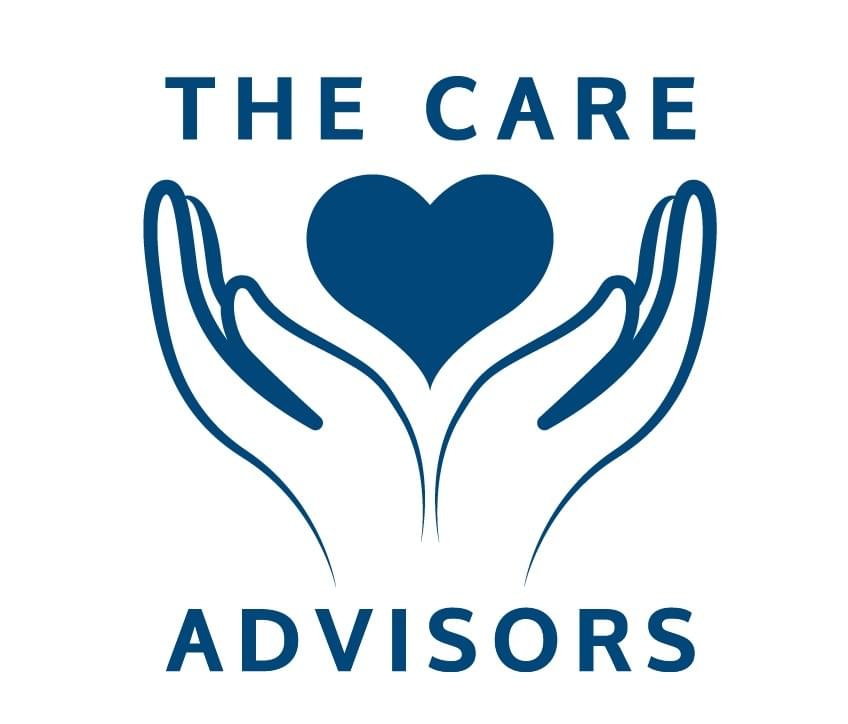
SPEAK WITH CARE ADVISOR
CALL (718) 866-3046
7 Tips For Taking Care of Aging Parents In their Old Age
Taking care of our aging parents is a journey filled with love and challenges. As they grow older, their needs change, and they might need more help than before. It's important to make sure they are happy, healthy, and feel loved. We need to think about how we can best support them. This means making their lives comfortable and ensuring they enjoy their days to the fullest. It’s all about showing them they are not alone and that we’re here to help them every step of the way. Keeping them safe, healthy, and connected with family and friends is key. By learning the best ways to care for them, we can make sure their golden years are truly golden. Let's explore seven tips that can help us do just that.
2. Establish Open Communication
Making sure our aging parents are safe and can move around easily in their home is really important. As they get older, the risk of falling or getting hurt increases. We can do a lot to help prevent accidents and make sure they feel confident moving around their home.
Create a Safe Space: Look around their home for things that might cause falls, like loose carpets or clutter. Keeping walkways clear is a good start.
Bathroom Safety: The bathroom can be a risky place. Installing grab bars near the toilet and in the shower can make a big difference. Using non-slip mats can also contribute to reducing the risk of falls.
Light Up Their World: Good lighting helps everyone see better, especially at night. Make sure there are enough lights, and they're bright enough, especially in hallways and stairs.
Floor Fixes: Look at the flooring at home. Is it slippery? Adding rugs with non-slip backing or choosing non-slip flooring can be a great help.
Easy Access: Think about how easy it is for them to reach things they use every day. Moving frequently used items to lower shelves and using easy-open containers can help a lot.
Handrails: Having something to hold onto can make moving around much safer. Install handrails in key areas like stairs to help them keep their balance.
By making these changes, we can help our parents stay safe and move around more easily in their home.
2. Establish Open Communication
Talking openly and listening carefully to our aging parents is key to understanding their needs and wishes. Here’s how we can make communication better:
Talk Often: Have regular chats about how they're feeling and what they need. This helps to maintain open lines of communication.
Listen with Care: Really listen to what they're saying. Sometimes, they just need someone to listen to their concerns or stories.
Respect Their Wishes: They might have strong feelings about what kind of help they want or don’t want. It’s important to respect their choices.
Clear and Simple: Keep conversations clear and simple. Avoid using complicated terms that might confuse them.
Patience is Key: Sometimes, you might need to explain things more than once. That’s okay. Be patient and kind.
Choose the Right Time: Pick a good time to talk when neither of you is tired or distracted. This makes understanding each other easier.
Solve Problems Together: If there’s a disagreement, work on finding a solution together. This shows respect for their opinions and makes them feel involved.
Body Language Matters: Sometimes, how we say something is as important as what we say. Use a friendly tone and positive body language.
By following these tips, we can build stronger relationships with our parents, making sure they feel heard, respected, and valued.

Create a Comprehensive Care Plan
A good care plan makes sure our aging parents get the support they need. It looks at their health, what they eat, and their day-to-day activities. Here's how to make a great care plan:
Understand the Big Picture: A care plan helps us see all the needs our parents might have. This means we don't miss out on anything important.
Talk to Doctors: Healthcare professionals can give us advice on what kind of care our parents need. They can check their health and suggest treatments or changes in their lifestyle.
Include Everything:
Medical Needs: This includes doctor's appointments, medications, and any treatments they need to stay healthy.
Dietary Needs: Eating the right food is really important for health, especially for older people. The plan should have details on what kind of diet is best for them.
Daily Activities: This is about helping them with everyday tasks like bathing, dressing, or even hobbies they enjoy.
Emergency Plans: It's also good to think about what to do in an emergency. Who to call, what steps to take, and how to make sure they get help fast.
Review and Update: People's needs can change. It's important to check the plan regularly and make updates if needed.
Involve Your Parents: Talk to them about the plan. Make sure they agree with what's in it and feel comfortable with it.
A care plan is like a map that guides us in taking care of our parents. It helps everyone know what to do and makes sure our parents get the care they need to be happy and healthy.
Click here and Explore how to apply for OTC cards and what supermarkets accept it.
4. Support Emotional Well-being
As our parents get older, they might face some emotional challenges. Feeling lonely or a bit down can happen, especially if they’re not as active as before. Here’s how we can help them feel better:
Understand Their Feelings: Sometimes, our parents might feel sad, worried, or lonely. It’s important to let them know it’s okay to feel this way and that we’re here to support them.
Spend Quality Time Together: Just being there can make a big difference. Watch a favorite movie together, share meals, or simply chat about the day.
Encourage Talking: Let them share their thoughts and memories. Listening shows we care and can help them feel valued.
Keep Them Connected: Help them stay in touch with friends and family. This could be through phone calls, letters, or even teaching them to use social media or video calls.
Promote Activities: Encourage them to join clubs or groups that share their interests. It’s a great way for them to meet new people and enjoy their hobbies.
Stay Active: Gentle exercise, like walking or yoga, can boost their mood. Plus, it’s something you can do together.
Give Them Purpose: Help them find small tasks or hobbies that make them feel useful and needed. This can be anything from gardening to volunteering.
Seek Professional Help if Needed: If you notice they’re often very sad or worried, it might be good to talk to a doctor or therapist. Sometimes, professional help is needed to feel better.
Remember, feeling emotionally well is just as important as physical health. By supporting their emotional well-being, we help our parents enjoy a more fulfilling and happy life.
5. Provide Financial Assistance
Taking care of aging parents can sometimes mean helping them with money matters. This is important to make sure they can live comfortably and have everything they need. Here’s how to help:
Understand the Costs: Know what expenses to expect, like healthcare, home care, or changes needed in the home to make it safer and more accessible.
Plan Together: Sit down with your parents to look at their finances. This can help you understand what they can afford and where they might need help.
Budget Wisely: Make a budget that includes their regular expenses and any extra care or medical costs. This helps you keep track of their money and ensures it lasts.
Explore Government Help: Many places have government programs that help older adults with their finances. This could be helped with medical costs, housing, or daily living expenses.
Look into Insurance: If they have insurance, understand what it covers. Sometimes, insurance can help pay for medications, health care, or even home modifications.
Legal Planning: It’s a good idea to talk about legal stuff like wills and power of attorney. This makes sure their wishes are followed, especially about their finances and health care.
Ask for Advice: If you’re not sure about something, ask a professional. Financial advisors or elder care experts can offer great advice.
Helping your parents with their finances doesn’t just mean giving them money. It’s also about planning, using resources wisely, and making sure they have what they need to feel secure. Remember, there are many resources out there to help, so you’re not alone in this.

6. Consider Respite Care
Respite care is like taking a little break for both you and your aging parents. It’s when someone else takes care of them for a short time, so you can rest and take care of yourself. This helps prevent you from getting too tired or stressed.
Here’s why it’s a good idea:
What is Respite Care?: It’s a special kind of help that allows caregivers to take a break. During this time, your parents are taken care of by professionals or volunteers.
Benefits: You get some time to relax, meet friends, or just have some quiet time. Your parents get to meet new people and maybe enjoy some different activities.
Options for Care:
In-Home Care: Someone comes to your home to take care of your parents. This could be for just a few hours or even a few days.
Adult Day Programs: These are places where elderly people can go during the day. They can do activities, meet others, and get care.
Short-Term Stays: Some care homes offer short-term stays where your parents can stay for a week or two.
Taking Breaks is Important: Caring for someone can be really hard work. Taking breaks helps you stay healthy and keeps you from getting too tired or stressed.
Seek Support: It’s okay to ask for help. There are groups and services that can support you and offer advice.
Using respite care means you’re taking good care of yourself and your parents. It’s important to remember that you can’t do everything alone, and taking breaks is a part of being a good caregiver.
Faq & Answers about Taking Care of Aging Parents In their Old Age
How can I help my aging parents stay mentally active and engaged?
Encourage them to try new hobbies like puzzles, reading, or art. Joining clubs or groups that focus on their interests can also stimulate their mind and keep them engaged with others.

What are some signs that my aging parent might need more help at home?
Signs include forgetting to take medication, difficulty with daily tasks, noticeable weight loss or gain, and a decline in cleanliness or hygiene. These may indicate it’s time to discuss additional support.
How do I choose the right in-home care service for my aging parents?
Look for services with good reviews and properly vetted staff. Consider your parents' specific needs, such as nursing care or help with daily activities, and discuss options with them to ensure their comfort and approval.
Can technology help in caring for aging parents, and if so, how?
Yes, technology can be incredibly helpful. Medical alert systems, video call devices, and health monitoring apps can enhance safety and communication. Smart home devices can also make daily tasks easier for them.
How can I balance my job and caregiving responsibilities for my aging parents?
Consider flexible working arrangements with your employer, such as remote work or adjusted hours. Look into caregiver support programs, and don’t hesitate to delegate caregiving tasks to other family members or professional services when necessary.
7. Explore CDPAP for Financial Support
Consider the Consumer Directed Personal Assistance Program (CDPAP) as a way to get paid for caring for your parent at home. CDPAP allows eligible individuals to hire and manage their own caregivers, including family members, and receive compensation for the care they provide. This program offers financial assistance and flexibility while allowing your parent to receive care from someone they know and trust.

The Consumer Directed Participant Assistant Program allows Medicaid eligible recipients to choose who provides their care!
Family, friends and loved ones are now able to be PAID for helping those close to them.
No trainings or certificates required. To learn more call us at (718) 866-3046 or fill out our quick form and we'll contact you!

Benefits of CDPAP vs. Traditional Homecare
-You choose who provides your care - Anyone except a spouse can be chosen as a care giver.
- Increased scope of practice - Unlike Traditional Homecare, CDPAP caregivers are allowed to perform skilled tasks such as medication administration and wound care.
- Flexible schedule - You and your caregiver set a schedule that suits you!
See What Families Are Saying!
Anais P. Testimonial
Tyesha W. Testimonial
Silvia R. Testimonial
We service all 62 counties of New York State for this program. Pay rates $21.09/hr in NYC.
Ready to get started?
Call (718) 866-3046 or fill out the form above and we'll contact you!
Get PAID to care for family & friends with the freedom to choose your own schedule!
